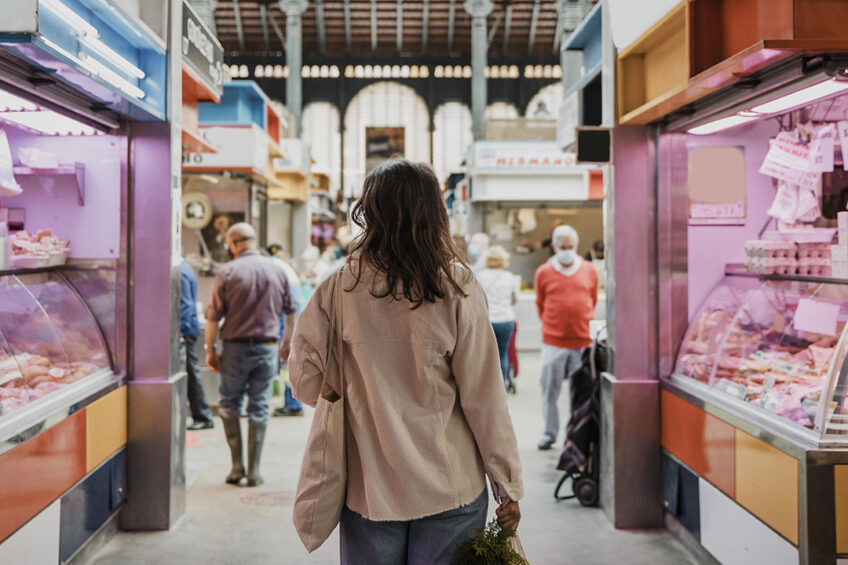Challenges facing the UK poultry sector

Rising production costs show no sign of slowing down, and in the face of a cost-of-living crisis, demand for quality, affordable food has never been higher.
Speaking at the South West Chicken Association conference, Maire Burnett, British Poultry Council technical director, said how the sector approached these challenges will define the industry for years to come.
Burnett urged the prime minister, Rishi Sunak, to make good his promises to farmers and producers that they “will have what they need” to ensure a sustainable and secure supply of world-class food for all. If that doesn’t happen, the UK will move into a 2-tier food system with many consumers forced to rely on imported food.
Sharp decline in poultry meat exports
Brexit, coupled with avian influenza and other issues, had been disastrous for the UK poultry industry, with meat exports declining from 375,000 tonnes in 2020 to 275,000 in 2021 and just 200,000 tonnes last year, representing a 46% decline.
The value of breeding stock exports had fallen even further from £180 million in 2020 to just over £120 million in 2021 and a paltry £50 million last year. If this continues, the UK will lose its position as a global hub for high-value breeding stock. Over 70% of poultry (chicken, turkey, and duck) consumed globally derives from UK breeding stock. Loss of export markets could also lead to job losses, said Burnett.
Two years on from Brexit, the sector was still awaiting the long-promised SPS Veterinary Agreement to ease the burden of trade and the introduction of Border Import Controls. A phased introduction of controls on imports from the EU and the rest of the world has been repeatedly delayed and is now due to come into effect at the end of this year.
Transport and welfare regulations for the poultry sector
Domestically, the sector faced increasing worries over UK regulations. Burnett highlighted the Welfare in Transport proposals which would introduce a maximum limit of 4 hours of transport for broilers to slaughter. Thermal regulations would mean birds moving more than 65km would have to adhere to only be transported when temperatures were between 5°C and 25°C.
The BPC asked the Royal Veterinary College to carry out the largest study of Dead-on-arrivals (DOAs) in broilers during transport to slaughter in the UK to show that the regulations were draconian. The overall DOA rate was significantly lower than previously reported in GB and other European countries at 0.06%, demonstrating the continuous improvement the GB industry has made in transport and welfare.
Transporting birds in the cooler parts of the day is likely to be the most beneficial and cost-effective intervention.
Labelling laws
The sector also faces new animal welfare labelling with a Defra consultation expected at the end of May, covering broilers, laying hens and the pig sector. It will apply to unprocessed and some minimally processed products, including imported goods, and will be through a tiered labelling system. It is possible legislation could be introduced before the end of the current Parliament, although there will be an 18-month lead in time for any new legislation.
Avian influenza
The broiler sector is also having to learn to live with avian influenza, dealing with a raft of ongoing operational, policy and trade issues covering resources, zones, secondary cleansing and disinfection, compensation, emergency legislation, country freedom, regionalisation and vaccination.
While vaccination is not a silver bullet and is not a substitute for poor biosecurity, it is an additional tool to control HPAI. The UK’s industry/government vaccination task force is looking at several issues, including:
- Availability of effective vaccines (EU trials are ongoing)
- Cost of avian influenza vaccination surveillance, which is extremely high
- Costs and benefits of a vaccination strategy
- Which species to vaccinate
- How to avoid trade barriers and the need for global discussions
- Whether France will indeed vaccinate this year
The main challenges were trade, cost, the fact that infected vaccinated birds may still be culled, public perception and a potential lowering of biosecurity if vaccination was given the green light. Opportunities were the possibility of fewer zones, less disruption to trade, public opinion and consistency of food supply.












